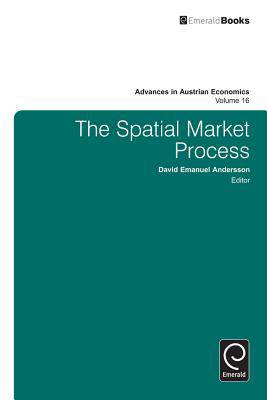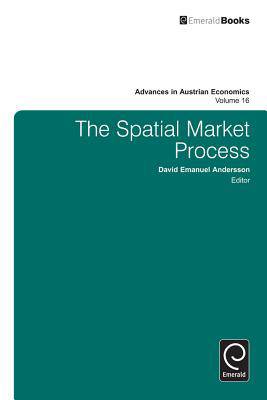
- Afhalen na 1 uur in een winkel met voorraad
- Gratis thuislevering in België vanaf € 30
- Ruim aanbod met 7 miljoen producten
- Afhalen na 1 uur in een winkel met voorraad
- Gratis thuislevering in België vanaf € 30
- Ruim aanbod met 7 miljoen producten
Zoeken
The Spatial Market Process
€ 335,45
+ 670 punten
Omschrijving
Key features of Austrian economic theory are the use of methodological individualism, the view that entrepreneurs cause development, and the recognition that local knowledge is largely tacit and thus difficult to communicate. The contributors to The Spatial Market Process show how these and other Austrian features provide an alternative foundation for understanding the spatial manifestation of economic phenomena. Many chapters elaborate upon theoretical insights first formulated by F.A. Hayek. The work of urban theorist Jane Jacobs, the entrepreneurship theories of both Joseph Schumpeter and Israel Kirzner, transaction costs in the Coasean tradition, and Fritz Machlup's notion of "knowledge conveyors" are examples of other theoretical constructs that are integrated into new spatial theories by the contributors; combining classical Austrian theories with contemporary breakthroughs.
Specificaties
Betrokkenen
- Uitgeverij:
Inhoud
- Aantal bladzijden:
- 350
- Taal:
- Engels
- Reeks:
- Reeksnummer:
- nr. 16
Eigenschappen
- Productcode (EAN):
- 9781781900062
- Verschijningsdatum:
- 4/07/2012
- Uitvoering:
- Hardcover
- Formaat:
- Genaaid
- Afmetingen:
- 156 mm x 234 mm
- Gewicht:
- 689 g

Alleen bij Standaard Boekhandel
+ 670 punten op je klantenkaart van Standaard Boekhandel
Beoordelingen
We publiceren alleen reviews die voldoen aan de voorwaarden voor reviews. Bekijk onze voorwaarden voor reviews.










